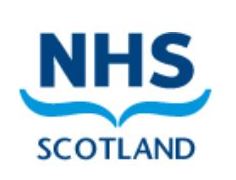Patient Confidentiality
Culloden Surgery is required to comply with the General Data Protection Regulations (GDPR) which came into effect on 25th May 2018.
The GDPR applies to all personal data held by an organisation in both automated and manual filing systems.
Culloden Surgery is committed to providing its patients with high quality health care and to forming a relationship with them based on trust. This means that both the staff and the clinicians respect patient privacy and the confidentiality of their medical and personal information.
Medical Records
As patients are treated, clinicians are required to maintain a complete copy of the patients’ medical records including medication conditions, treatment plans and treatment given including the results of tests, procedures and therapies. All patient records in the practice are now only held electronically. These records are only accessed by the doctors, staff and other health care professional involved in the patient’s care.
How do we assure privacy?
Staff and clinicians in the practice adhere to confidentiality and recognise the importance of patient privacy. Any violation of confidentiality or failure of an employee to protect patient information from accidental or unauthorised access will not be tolerated and such an incident would be subject to disciplinary action.
How does a patient access their medical information?
The patient, anyone whom the patients gives written permission to, or the patients legal representative (subject to written authority and consent) has the right to access their medical records.
If a patient or their representative wishes to see their medical records they can request to do so in writing to the practice. We can arrange a time for a patient to attend to read their records when a member of staff is present. Sometimes it may be useful for a clinician to be present to answer any questions.
If a patient wishes to get a copy of their medical records or part of their medical records, we can arrange to print these and the staff will arrange for the patient to collect the records once they are ready.
Patient Summaries which contain basic patient information can also be provided and may be useful for patients moving abroad to pass to their new doctor.
On occasion, a doctor can refuse access to medical information if they feel that such access would cause harm or distress to the patient.
If a patient or their representative requests copies of medical records, the Practice has a month in which to comply.
What happens if someone else asks for access to medical information?
The practice can share medical information with other health care providers without explicit consent from patients. This includes the Out of Hours service and the provision of information taken directly from a patient’s medical records when making a referral to the hospital.
Any other public or non public body (such as the police, or a solicitor or insurance company) cannot just ask to see your medical information. For any such body or private organisation we would need a patient’s express consent in writing for the release of medical information.
In the event of receiving a police warrant or a request from a court judge, practices do have to release information and can do this without the consent of the patient. In cases where child protection is under scrutiny then the Practice may have to release information without the patient’s consent (if it is considered that to do so would protect a child).
If patients have any queries about the above they can contact the Practice Manager for further advice.
A copy of our Privacy Notice can be found here.
